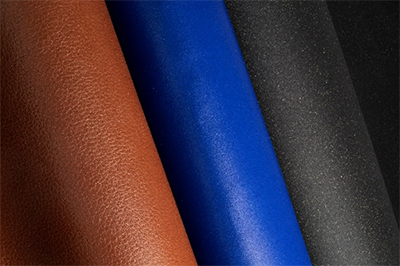Japanese chemical company Asahi Kasei has decided to invest in USA-based startup NFW, a producer of non-petroleum-based leather alternative for car interiors.
As part of Asahi Kasei’s growth strategy and in close cooperation with Sage Automotive Interiors (Sage), a provider of innovative and functional materials for the automotive interior, the partnership enables support for global OEMs in reducing the environmental burden of automobiles.
Based in Peoria, Illinois, NFW was founded in 2015 and has developed the only platform capable of producing precision-engineered natural (non-petroleum-based) leather, foam and textiles, to replace animal and petrochemical-based materials.
Certified by the United States Department of Agriculture as having 100% biobased content– the company’s patented leather alternative Mirum is made from natural rubber, natural fibers, plant oils, natural pigments and minerals. According to the company, the material offers superior durability and quality that can replace traditional animal-based or synthetic leather products without the use of any polyurethane or other coatings.
As described in its medium-term management plan in April 2022, the car interior material business is one of Asahi Kasei’s “10 Growth Gears” (GG10), businesses that are to drive future growth, targeting more than 70% of operating income around 2030.
Sage is engaged in the development, manufacture and sales of innovative functional materials used in automobile interiors globally. Dirk Pieper, chairman of the Sage Board of Directors and lead executive for the development and growth of Asahi Kasei’s overall automotive product offering, said, “By jointly developing and manufacturing a non-petroleum-based and fully circular leather alternative, the Asahi Kasei Group takes a leading position in revolutionizing the market for car interior materials.”
The cooperation with NFW is the first project within Asahi Kasei’s Care for Earth investment framework announced in April 2023. The company allocated up to US$100m for investments worldwide in early-stage startups that aim to solve issues in environmental fields such as hydrogen, energy storage, carbon management and bio-based chemicals over the five-year period up to fiscal 2027.




